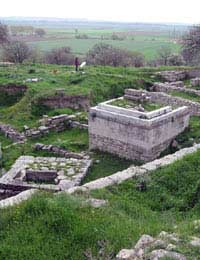Protecting Famous Sites as a Responsible Tourist

Famous sites are marvellous. Whether stunning pieces of architecture, ancient wonders of the world or amazing natural landscapes, there is no shortage of places to travel to across the world and all manner of reasons as to why you would want to go there. However, because many thousands or even millions of people feel like this, there is a danger that these sites can be damaged, sometimes beyond repair, if they are not treated with care by those both visiting and promoting them. Of course, one way to stop these places being damaged would be to stop travelling to them, but this is far from practical or reasonable, both in terms of preventing all but a few people from seeing some of the greatest things the world has to offer and the income from tourism for those who live and work near these sites. So, what can be done?
The Countryside Motto
Those who are familiar with the countryside motto ‘take nothing but photographs, leave nothing but footprints’ will know that such a simple phrase can go a long way to protecting all kinds of sites across the world, not just the British countryside. Many ancient monuments have been destroyed or at least damaged in some way by people trying to take home part of them, be it a rock, a flower or some other artefact. But as the Athenians will tell you when speaking about the Elgin marble, the best place for these things to be is in the site that they were originally found in, whether they were out there as part of a monument or grow there naturally. Similarly, litter and the like can spoil all kinds of landmarks. One has only to think of the pollution in the Mediterranean Sea to know that this is true. Although no-one could accuse tourists of being solely responsible for this, it is true that they have contributed in some way.Vandalism
One would hope that people who make the effort to travel to spectacular places would not vandalise them, and yet this is not always true. Chichen Itza in Mexico is a prime example. It’s main pyramid has been closed to the public, in terms of climbing it, because people were carving their names into the rock and even writing on it in the worst cases. Whether these people do not care or are ignorant about the consequences of their actions is a mystery, but it goes without saying that to deface something in such a way is certainly not travelling responsibly.Managed Visiting
Perhaps the most famous ecosystem in the world, the Galapagos Islands are really only accessible to those who want to travel responsibly as visiting them is so carefully managed. The fragile and intricate eco-system there could be completely decimated if tourism was left completely unchecked. And yet, even the managed cruises and visits there are not without their dangers. No amount of care can ever wipe out foreign organisms creeping in when humans visit, yet humans must be allowed to visit for us to appreciate something of the way our world works away from human life.Planning trips carefully and doing plenty of research can help make you a more responsible tourist and minimise any damage you do to sites you visit. In addition, when you are there, if you see signs forbidding you to do something, remember that they are there for a reason and are helping to preserve the site for future generations. Because if we do not travel responsibly we really do run the risk of seeing some of the most celebrated sights on Earth vanish.


Re: Being a Responsible Citizen
Suh
Re: Being a Responsible Citizen
I like it
Re: The Role of Volunteers
Everyone has importance in the society in different ways.
Re: Questionnaire: Do You Have Time to Be a Volunteer?
Great interpretation of results. However, various optional interpretations and generalization are not…
Re: Good Citizenship
I was denied citizenship because i am black, why is this
Re: The Role of Volunteers
Hello I would like to have volunteers to visit my organisation called the NISSI PROJECT, found in Uganda, Africa,we care about orphans and…
Re: Being a Responsible Citizen
you should adress the goverment departments and agencies they will manipulate situations , for thier benefit and outcome , and…
Re: Being a Responsible Citizen
I love this topic. This is what I have been preaching as an NGO. And the act of being responsible is transferable. Children watch…
Re: The Role of Volunteers
I desire to receive volunteers to my community. I need my community to be empowered and helped to reduce crime.We have an organization…
Re: Prejudice Towards Disabled People
i would strongly suggest using people first language disabled person is incorrect, it should be person with a disability